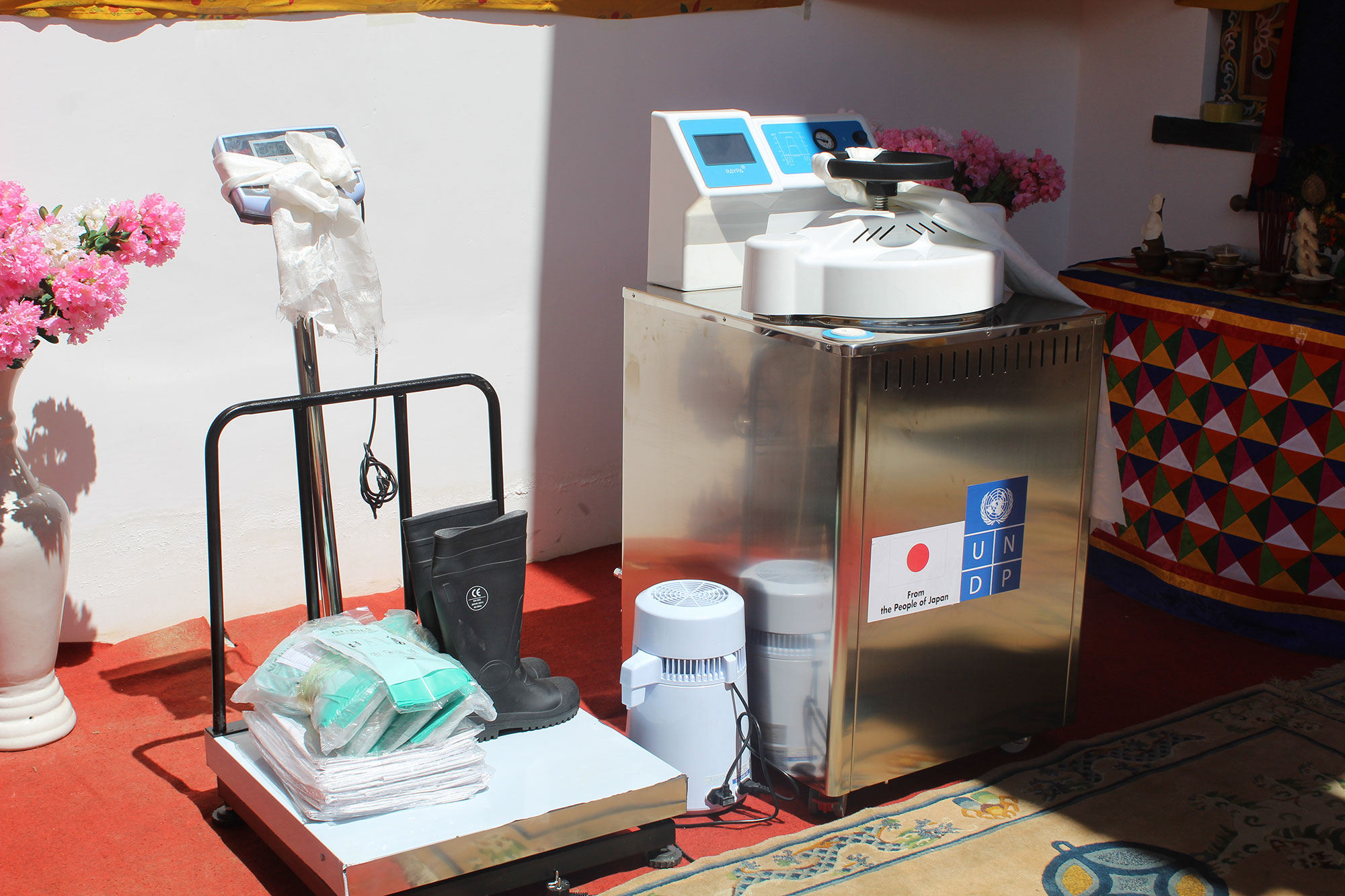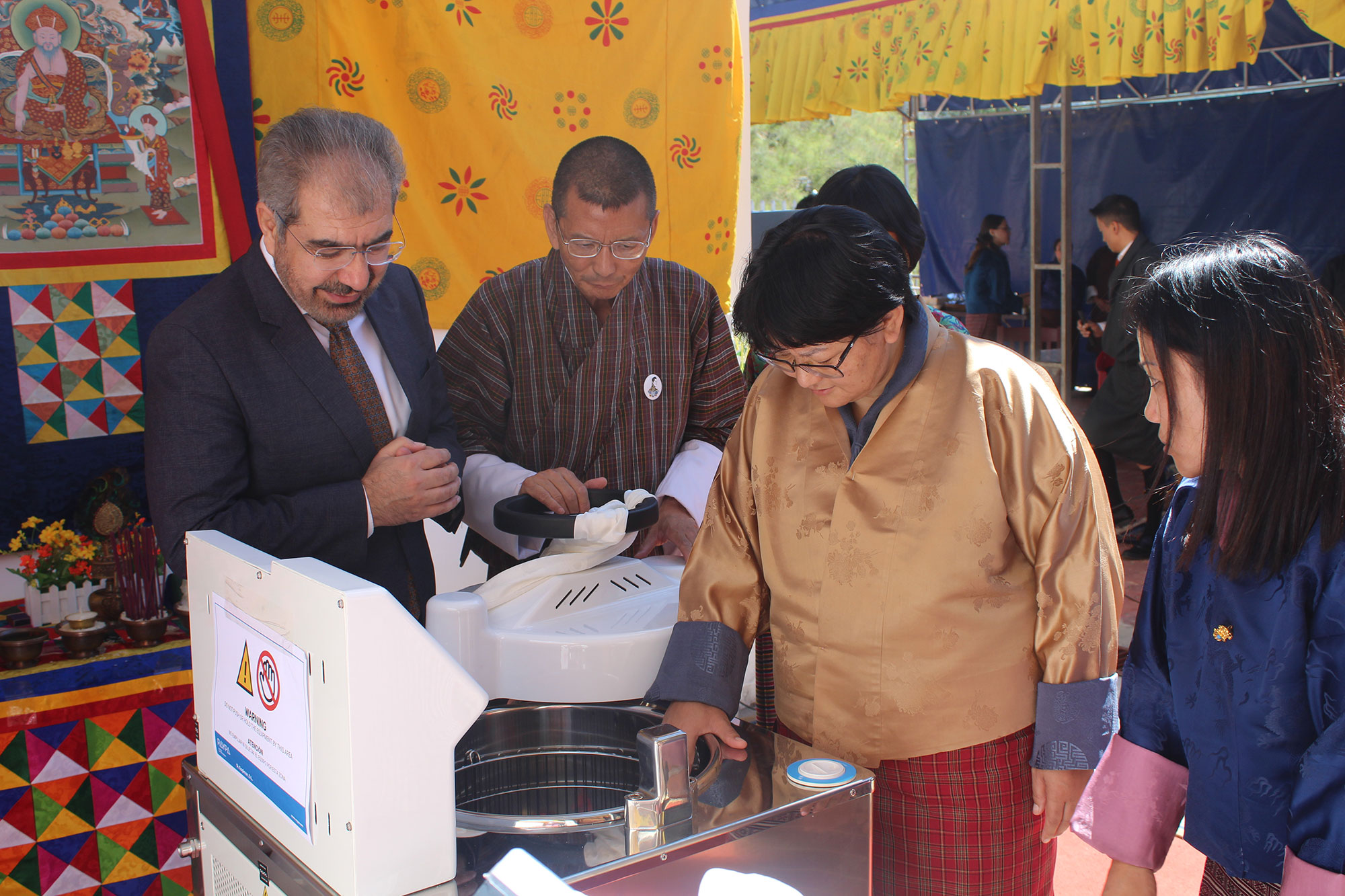Jigmi Wangdi
The United Nations Development Programme (UNDP) and the Government of Japan have delivered specialised healthcare waste management equipment to the Ministry of Health (MoH).
This is a vital step towards safeguarding human health and the environment.
The equipment was officially handed over to the Debsi Health Centre in Thimphu yesterday in a ceremony attended by Health Minister Dechen Wangmo, UNDP Resident Representative Mohammad Younus, and officials from MoH, Thimphu Thromde, and gewog health centres.
Kyoko Hoguko, the Minister for Economic Development of Japan participated virtually from the Embassy in New Delhi.
The proper management of infectious healthcare waste is imperative, and this specialised equipment, valued at over USD 1 million, will be distributed to 112 health centres across 15 districts and five cities in Bhutan.

It aims to address the challenges posed by inadequate healthcare waste management systems and will also support a fleet of five specialised medical waste trucks.
Lyonpo Dechen Wangmo stressed the significance of infectious waste management, highlighting its role as the backbone of quality healthcare service delivery. The pandemic underscored the urgency of adequate investment in medical waste management, as a substantial amount of infectious waste had to be incinerated at crematoriums.
The healthcare waste management equipment includes 112 fully automated autoclaves or waste sterilizers, Personal Protective Equipment (PPE) worth USD 81,000, and 100 weighing scales.
Kyoko Hoguko expressed hope that the provided Grant Aid would be effectively utilised by the Bhutanese Government and healthcare workers to address infrastructure challenges related to the safe treatment, transportation, and disposal of healthcare waste, including digitalization gaps.
As part of the project, waste handlers are undergoing comprehensive training in treating and handling infectious waste, which necessitates special treatment processes to prevent the transmission of diseases to patients, hospital staff, and nearby communities.
More than 250 waste handlers from healthcare centres, thromdes, and private waste management firms covering 12 western and southern districts have already been trained, with an additional 100 waste handlers from the eastern districts set to receive training in the coming week.
Mohammad Younus highlighted that this project is one of several Bhutan-Japan-UNDP partnerships aimed at strengthening Bhutan’s healthcare system and establishing sustainable solutions for the safe treatment, transportation, and disposal of infectious healthcare wastes.
By equipping healthcare centres, especially those in remote areas, the project ensures that the country’s remote and hard-to-reach populations are not left behind.
The project is working to promote gender equity in healthcare waste management, addressing challenges related to gender-friendly environments, services, and equipment, as well as raising awareness of gender equality and related issues, including sexual exploitation.
This focus is particularly critical, as 56 percent of the existing waste handlers in hospitals and Primary Healthcare are women.
In total, the healthcare waste management equipment represents an investment of over USD 1.13 million, signalling a significant advancement in healthcare waste management practices in Bhutan.


